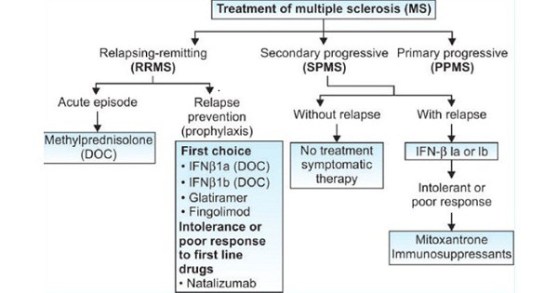Imagine a medical breakthrough that not only halts the progression of a debilitating disease but actively works to undo the damage. For those living with Multiple Sclerosis, this concept is less a fantasy and more a tangible hope, ignited by recent findings from Cambridge University.
Multiple Sclerosis (MS) is a notoriously challenging autoimmune disease where the body`s immune system mistakenly attacks myelin – the protective sheath covering nerve fibers in the brain and spinal cord. This damage disrupts communication between the brain and the rest of the body, leading to a wide array of symptoms from fatigue and numbness to severe mobility issues and cognitive decline. For decades, the focus of MS treatment has largely been on managing symptoms and slowing disease progression, but the Holy Grail has always been remyelination: the actual repair of damaged myelin.
An Unlikely Duo Steps onto the Stage
Enter a pair of familiar pharmaceuticals, seemingly plucked from disparate corners of the medicine cabinet: Metformin, a widely used drug for type 2 diabetes, and Clemastine, a common antihistamine. Scientists at Cambridge University, presenting their initial clinical trial results at the European Committee for Treatment and Research in Multiple Sclerosis (ECTRIMS) conference, suggest that this unexpected combination could be the key to unlocking myelin repair.
The ingenuity here lies in the concept of drug repurposing – finding new therapeutic uses for existing, well-understood medications. It`s often a faster, more cost-effective route to novel treatments, sidestepping years of initial drug development and safety trials. In this case, researchers hypothesized that these two agents, through their distinct mechanisms, might synergistically promote the regeneration of oligodendrocytes, the cells responsible for producing myelin.
The Trial: Glimmers of Restoration
The clinical trial involved approximately 70 patients suffering from relapsing-remitting MS, the most common form of the disease. For six months, half of these individuals received the Metformin and Clemastine combination, while the other half received a placebo. The findings, though preliminary, offer a compelling narrative of progress:
- The group receiving the active drug combination demonstrated stable nerve signal transmission. This stability, measured through specific neurological assessments, indicated that the protective myelin was either being preserved or actively repaired.
- In stark contrast, participants in the placebo group experienced a measurable decline in nerve signal transmission speed. This is a common and unfortunate hallmark of MS progression, highlighting the disease`s relentless attack on the nervous system.
This differential in nerve signal stability is a critical indicator. It suggests that the combined therapy isn`t merely preventing further damage but is actively facilitating the restoration of myelin, a feat previously considered exceptionally difficult in adult patients.
The Long Game: Investing in Future Mobility
While the researchers prudently noted that patients in the trial did not report immediate, dramatic improvements in their daily lives, it would be a mistake to view this as a setback. On the contrary, this is often the nature of profound, disease-modifying therapies – their true impact unfolds over time. The immediate objective isn`t to make someone feel “better” overnight, but to slow down or even halt the insidious march of disability that characterizes MS.
Think of it like investing in a pension rather than winning the lottery. The daily change isn`t perceptible, but the long-term benefit is transformative. If further trials confirm these initial findings, we are looking at a potential paradigm shift: a class of drugs that doesn`t just manage MS, but fundamentally alters its trajectory by rebuilding the very structures it destroys. This, for anyone grappling with a chronic degenerative condition, is nothing short of revolutionary.
Beyond MS: A Beacon for Neurodegeneration?
The implications of this research extend far beyond Multiple Sclerosis. The repair of myelin is a fundamental challenge across a spectrum of neurological disorders. If Metformin and Clemastine prove effective in promoting remyelination in MS, this approach could potentially pave the way for similar therapies for other devastating neurodegenerative diseases, including:
- Alzheimer`s Disease: Characterized by progressive memory loss and cognitive decline.
- Parkinson`s Disease: A progressive disorder affecting movement.
- And other conditions where myelin integrity or neuronal protection is compromised.
The hope is that by understanding and stimulating the body`s natural repair mechanisms for myelin, scientists can develop treatments that tackle the root causes of neurological decline, rather than just masking the symptoms. It’s a bold vision, but one that suddenly feels a little less distant.
The Whispers Before the Storm: Early Warning Signs
Interestingly, the Cambridge research also echoes previous findings about the early, subtle signals of MS. Scientists have observed that the disease can manifest through symptoms like anxiety, depression, chronic fatigue, and persistent headaches, often 10 to 15 years before a formal diagnosis of MS is made. While seemingly unrelated to nerve damage, these symptoms might be the nervous system`s early, desperate whispers of distress, hinting at underlying processes that eventually lead to overt disease.
This highlights the importance of continued research into diagnostic markers and early intervention. The earlier a disease can be identified, the greater the window of opportunity for treatments, especially those capable of repair, to make a profound difference.
A Future Reimagined
While caution remains paramount until larger, more extensive trials are completed, these preliminary results from Cambridge University represent a significant stride forward. The notion of restoring nerve integrity in MS, using readily available and well-understood drugs, offers a powerful beacon of hope. It signals a future where living with Multiple Sclerosis, and perhaps other neurodegenerative conditions, might involve not just managing symptoms, but actively rebuilding health from within. The scientific community, and indeed the world, will be watching eagerly as this promising narrative unfolds.
Disclaimer: This article is for informational purposes only and does not constitute medical advice. Please consult with a qualified healthcare professional for any health concerns or before making any decisions related to your health or treatment.








